nsa
Latest
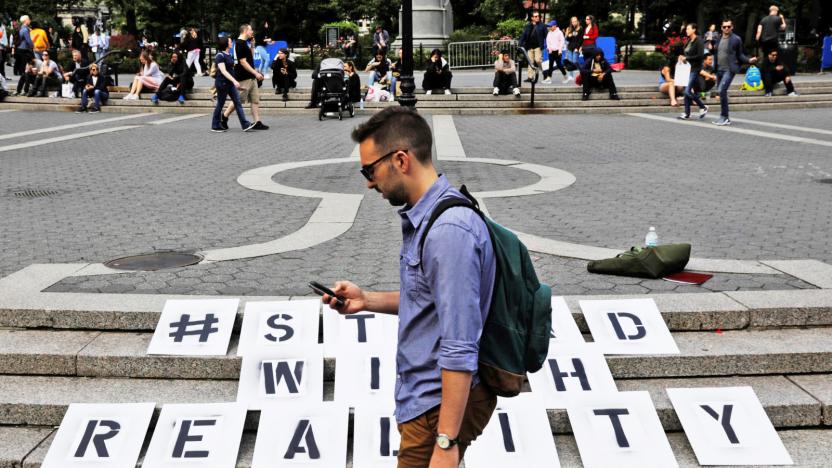
Reality Winner will plead guilty for leaking NSA election hacking info
A little over a year ago, The Intercept posted top-secret NSA documents covering Russian attacks on US voting systems, showing they hacked at least one voting software company and attempted to phish more than 100 local officials. Despite emails the outlet received (via FOIA requests) showing local officials didn't even know about the hacking until they read news reports, the government contractor who allegedly leaked the documents has been in prison ever since. Now an organization that supports whistleblowers, The Courage Foundation, has announced that the contractor, Reality Leigh Winner, will plead guilty in an Augusta, GA federal courtroom at 10 AM ET. Charged under the Federal Espionage Act, she faced up to ten years in prison.

Vintage NSA posters remix pop culture as security warnings
Everyone loves a good government-issued propaganda poster for the chutzpah to blend protocol instruction with jingoistic cheer. A new batch of them, declassified in April, were created by the NSA back in the 60s and 70s to reinforce security policies. But boy, do they show their age and influence, using space-age designs and remixing pop culture material from the era to urge caution. Here's a few examples from a repository on the Government Attic site.

Prime suspect in CIA ‘Vault 7’ hack still hasn’t been charged
Last year WikiLeaks published a ton of secret documents about the Central Intelligence Agency's (CIA) hacking capabilities. The breach -- the largest loss of classified documents in the agency's history -- revealed its far-reaching abilities to snoop on modern technology, including software designed to takeover smartphones and turn smart TVs into surveillance kit. Now, the prime suspect has been identified, but despite being in prison since August, has not been charged for his role in the breach, since referred to as Vault 7.

NSA tripled its phone record collection in 2017
The NSA retired its old surveillance program that indiscriminately inhaled billions of phone logs a day back in 2015, but that doesn't meant it's no longer collecting call data. According to a transparency report (PDF) released by the Office of the Director of National Intelligence, the agency got its hands on 534 million call and text records from telecommunications companies like AT&T and Verizon in 2017. That's over three times the number (151 million) it collected in 2016, which was the first full year since new surveillance rules under the USA Freedom Act took effect.

US elevates the role of Cyber Command
After months of talk and planning, US Cyber Command is now just as important as the rest of the Pentagon's commands -- at least, on paper. The military has officially elevated its cyberwarfare division to a "unified command" that operates independently of the NSA. It's not a complete split. General Paul Nakasone (shown above) will run both Cyber Command and the NSA, replacing Admiral Michael Rogers.

US intelligence agencies warn buyers to avoid Huawei smartphones
After being rebuffed by carriers AT&T and Verizon, Huawei's push to sell phones in the US isn't getting any easier. Six top US intelligence chiefs, including the heads of the FBI, CIA and NSA, told Americans they wouldn't recommend buying products or services from the Chinese manufacturer, CNBC reports. "We're deeply concerned about the risks of allowing any company or entity that is beholden to foreign governments ... to gain positions of power inside our telecommunications networks," FBI Director Chris Wray testified to the Senate Intelligence Committee.

NSA sent coded messages through Twitter
Spy agencies have a long history of using public outlets to deliver secret messages, such as numbers stations or cryptic classified ads. Now, however, they've adapted to the internet era. Both the New York Times and the Intercept have learned that the National Security Agency used Twitter to send "nearly a dozen" coded messages to a Russian contact claiming to have agency data stolen by the Shadow Brokers. Reportedly, the NSA would tell the Russian to expect public tweets in advance, either to signal an intent to make contact or to prove that it was involved and was open to further chats.
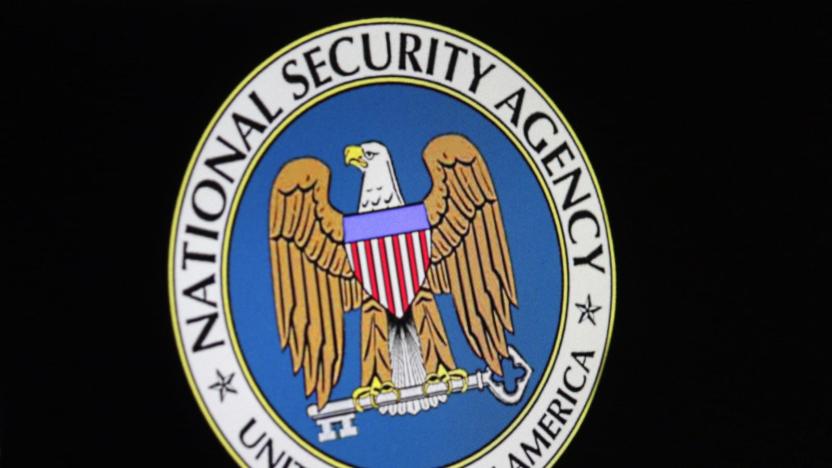
Senate votes to extend NSA’s warrantless surveillance program
Last week, the US House of Representatives voted to renew Section 702 of the Foreign Intelligence Surveillance Act, a law that lets the National Security Agency monitor communications of non-US citizens living outside of the US. Today, the Senate has also voted in favor of renewing the law for another six years.
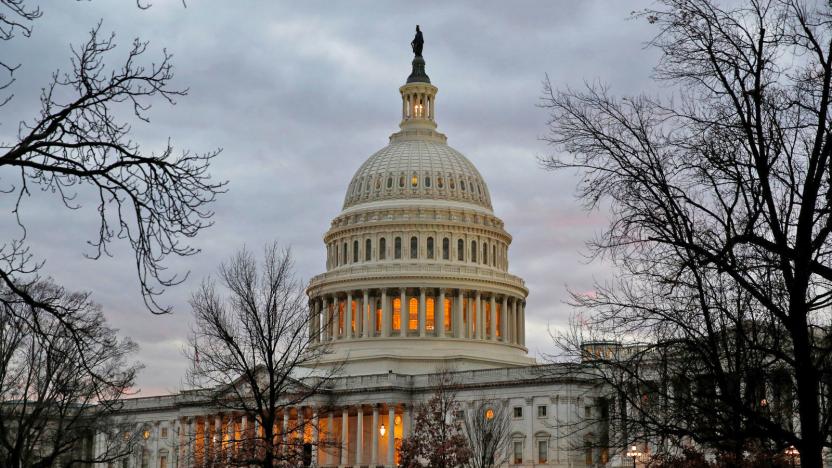
House votes to extend NSA’s warrantless surveillance capabilities
Today, the US House of Representatives voted to renew the law that allows the National Security Agency to surveil communications between American companies and foreigners located outside of the country without a warrant. It's Section 702 of the FISA Amendments Act, and the House extended its provision for six years. It still needs to go through the Senate, but according to The New York Times, there are fewer advocates of major overhaul to current spying laws in that chamber, so it will likely pass without too much difficulty.
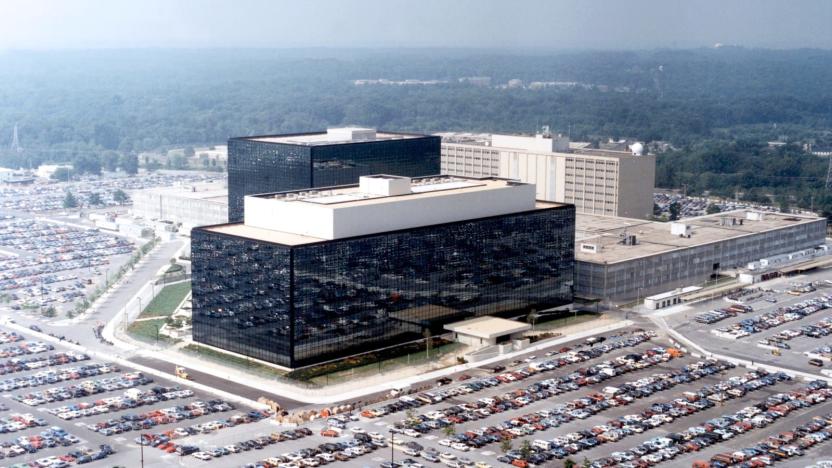
Ex-NSA contractor will plead guilty to stealing 50TB of data
Harold Martin, the former US National Security Agency contractor accused of stealing classified information, has agreed to plead guilty to his charges. According to court filings posted on Wednesday, Martin will plead guilty to one count of wilful retention of national defense information and could face up to 10 years in prison on the single count.

NSA surveillance reauthorization bill won't go to a vote just yet
House Republicans' plans to vote on a bill reauthorizing and expanding the NSA's data surveillance have been put on ice, at least for a while. Intelligence Committee chair Devin Nunes has informed the media that the vote to extend FISA Section 702, which lets the NSA and FBI collect online communications of foreign targets from US companies, won't happen "for now." Just what will happen next isn't clear -- the choice is "above my pay grade," Nunes said. Approval could fold into a necessary government spending bill, but that doesn't seem as likely when there are serious challenges to the bill within the Republican party.

White House lets NSA's warrantless surveillance continue until April
The Foreign Intelligence Surveillance Act's Section 702, which authorizes the NSA's warrantless data gathering, is supposed to expire on New Year's Eve. Don't tell that to the White House, though. Lawyers for the executive branch have determined that FISA Section 702 surveillance can legally continue until April 26th, 2018. The rationale comes down to a technicality. As the FISA Amendments Act says orders issued under 702 can continue for a year, and the last year-long certification was issued on April 26th, 2017... well, you do the math.
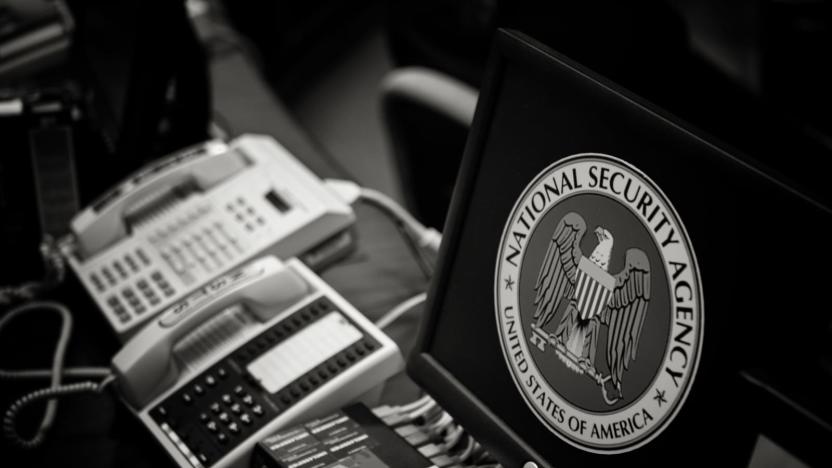
Ex-NSA worker pleads guilty to taking data involved in Russian hack
The NSA hasn't been having the best week when it comes to security, but it's getting at least some closure. A former employee, now known as Nghia Pho, has pleaded guilty to bringing home classified data that was later stolen in a hack linked to Russian intelligence. Pho is expected to face prison time when he's sentenced on April 6th, but prosecutors have capped the maximum penalty to 8 years (versus the typical 10) and are open to calls for a lighter sentence given the non-malicious nature of the case.

NSA surveillance expansion bill moves to House for a vote
Intelligence officials might not get the permanent surveillance powers they're looking for, but they could get some key concessions all the same. The House Intelligence Committee has passed the FISA Amendments Reauthorization Act of 2017 in a partisan 12-8 vote, clearing it for an eventual vote in the House of Representatives. The bill is ostensibly about renewing the FISA Amendments Act's Section 702 for 4 years, but it also expands the list of eligible spying targets.

Classified US Army and NSA data was stored on an unprotected server
Earlier this month, researchers at UpGuard reported that US military intelligence gathering data had been stored on a misconfigured Amazon Web Services S3 server that wasn't password protected and was publicly viewable. While the data in that leak appeared to consist entirely of collected public internet posts and news commentary, not private information, the team at UpGuard today reports another US government data leak, this time containing clearly classified information.

Senators propose 'USA Liberty Act' to reauthorize NSA surveillance
The question of how to rein in monitoring enabled by Section 702 of the Foreign Intelligence Surveillance Act (FISA) has been in the spotlight ever since the Edward Snowden PRISM revelations. What exactly to do about it has gone back and forth, but the latest attempt to "reform" surveillance is here in the form of the USA Liberty Act, a bipartisan proposal introduced by Senators Mike Lee and Patrick Leahy (PDF). The Washington Post figures it has little chance of passage, however, it does contain language that would make government agencies get a warrant before searching information collected by the NSA under Section 702.

Kaspersky says it briefly possessed classified NSA files
Earlier this month, reports surfaced that classified NSA documents detailing how US agencies defend their cyber networks and how they breach foreign ones were stolen by Russian hackers in 2015. Those reports noted that the files were spotted through Kaspersky security software used by an NSA contractor who had saved the classified documents on a home computer. Well, Kaspersky has now provided some more information about the incident and it has acknowledged that it did in fact have classified NSA materials in its possession, the Associated Press reports.

Senators propose reforms to wide-reaching surveillance law
Eleven senators -- both Republican and Democrat -- introduced new legislation today that calls for substantial reforms to Section 702 of the Foreign Intelligence Surveillance Act, Reuters reports. Section 702 allows intelligence agencies to monitor the communications of foreign targets living outside of the US, but it also enables those agencies to collect information on US citizens if they happen to be in communication with the non citizens being monitored.

Israel warned the US about Kaspersky after hacking its network
Kaspersky is in hot water...again. The US government recently prohibited federal agencies from using the company's products, and the FBI is reportedly convincing private entities to do the same. Its latest headache is linked to the NSA cyberattacks allegedly carried out by Russian hackers, who made away with official cyber defense material in 2015. The US intelligence agency claimed it noticed the stolen files using Kaspersky software. Little else was revealed about the incident (news of which broke last week) until now. It seems Israeli officials tipped off the US about the Russian intrusion, having hacked into Kaspersky's network, according to The New York Times.

What if Russian voter hacks were just part of its Facebook ad campaign?
This week's news that Russian Facebook ads targeted crucial swing states in the 2016 election changes what we know about the voter databases and software systems that were hacked into by Russian military intelligence in key battleground states. News that electronic election systems were hacked by Russian agents prior to the election hit headlines in June. But this was before Facebook was forced to admit that Russian political ads were used to influence voters thanks to the company's sniper-like ad-targeting precision.









